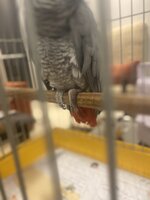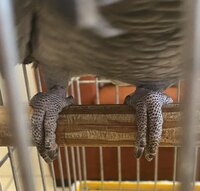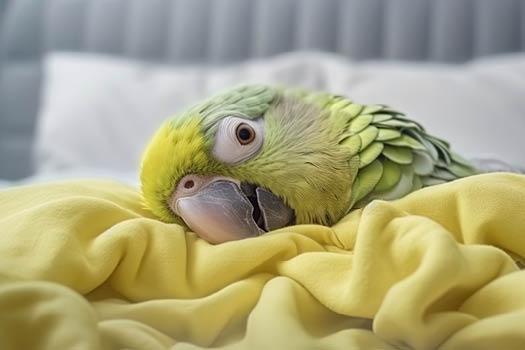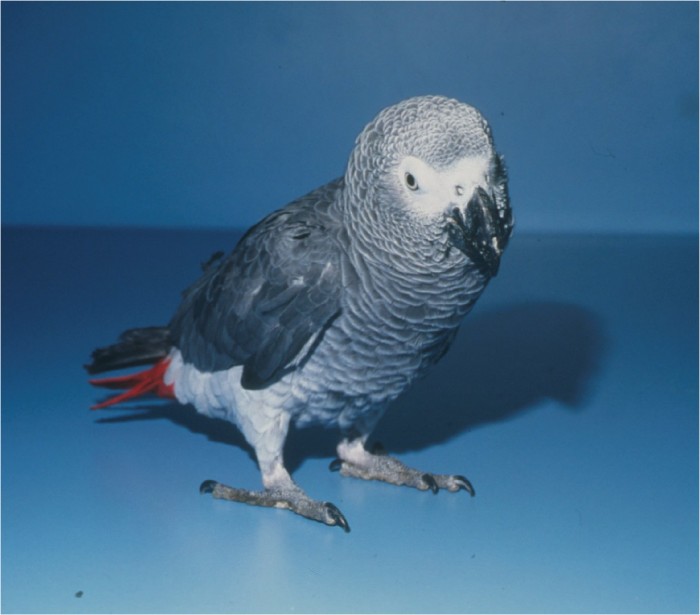Meursault8
Checking out the neighborhood
- Joined
- 8/7/22
- Messages
- 1
A few months back (late march) my 15 year old African grey parrot suddenly became sluggish and was occasionally hyperventilating and vomiting. Naturally I immediately took him to an avian vet, who started him on antibiotics (marbofloxacin) without any blood testing or much of a real check up. In the days that followed, my bird was throwing up more and developed a black spot on his left foot, which as I’m writing this has spread to both his feet (See attached pictures). We took him to the vet again who this time seemed to think that he had a calcium deficiency, and prescribed him a supplement and the continued antibiotic treatment. 2-3 days later, he started having seizures where he would violently fall from his perch and have spasms at the bottom of his cage while rolling his eyes backward, which begged another visit to the vet. This time, the vet insisted on administering an anesthetic for nothing more than a blood draw, on which everything was allegedly “normal” except for AST levels that weren’t calculated. The vet took this to mean that my bird had liver failure, and prescribed another medication for that. It became clear at this point that he had no idea what he was doing, which was frustrating since he’s reputably the only good avian vet where I’m from. Nevertheless, I administered all medications as indicated.
My bird became blind in the days that followed. His eyes became swollen with some thick discharge coming from them.
To this day, he is still sluggish, still blind, falling from his perch nearly every day and not talking anymore except with an extremely deep and raspy voice. Both his feet also became much darker in color and swollen. This has been the case for the past few months, during which he’s been to two other vets (not avian specialists) who both basically said there’s nothing they can do for him. I tried giving him doxycycline, an antifungal and supplementing him with Lafeber’s bird vitamins daily, all to no avail. I’m at a loss at this point as does not seem to be getting even slightly better, except for the throwing up which stopped a while ago.
I haven’t a clue what he is suffering from and the vets where I’m from don’t seem to either. Please, if you have any thoughts on how I can help him/what this could be, do share them below.
My bird became blind in the days that followed. His eyes became swollen with some thick discharge coming from them.
To this day, he is still sluggish, still blind, falling from his perch nearly every day and not talking anymore except with an extremely deep and raspy voice. Both his feet also became much darker in color and swollen. This has been the case for the past few months, during which he’s been to two other vets (not avian specialists) who both basically said there’s nothing they can do for him. I tried giving him doxycycline, an antifungal and supplementing him with Lafeber’s bird vitamins daily, all to no avail. I’m at a loss at this point as does not seem to be getting even slightly better, except for the throwing up which stopped a while ago.
I haven’t a clue what he is suffering from and the vets where I’m from don’t seem to either. Please, if you have any thoughts on how I can help him/what this could be, do share them below.
Attachments
-
61.9 KB Views: 11
-
150.1 KB Views: 11






